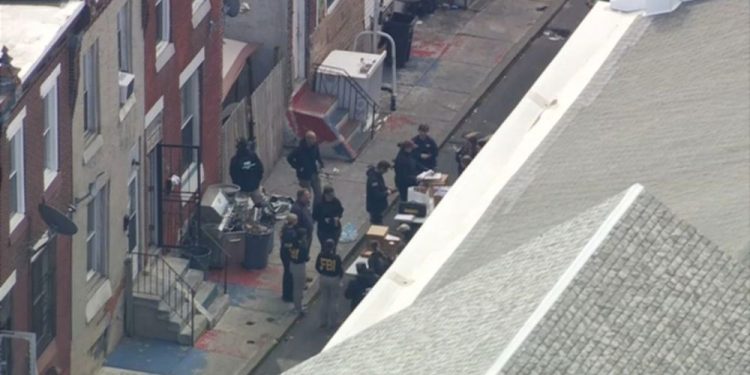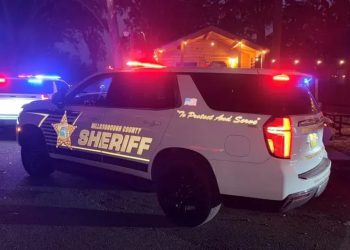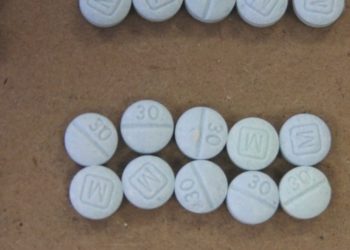Federal officials have announced the indictment of 33 members of a violent Pennsylvania drug trafficking organization in what prosecutors say is the greatest federal criminal case pursued by the Eastern District of the United States Attorney’s Office this century.
According to the Department of Justice (DOJ), the Weymouth Street Drug Trafficking Organization (Weymouth DTO) ran a massive drug network that sold fentanyl, heroin, crack cocaine, and cocaine throughout Kensington, one of Philadelphia’s most renowned drug zones.
From 2016 to October 2025, the organization allegedly controlled many blocks in Kensington through violence, shootings, and intimidation.
“This indictment is, by defendant, the largest federal case of this century prosecuted by our office, and it attacks the very heart of the opioid crisis,” said U.S. Attorney David Metcalf. “We are committed to returning these neighborhoods to their residents and reclaiming them from drug dealers who profit from the misery of others.”
The federal indictment, announced Friday, charges all 33 defendants with conspiracy to distribute controlled narcotics and dozens of other offenses stemming from their alleged involvement in the Weymouth DTO network.
The Federal Bureau of Investigation (FBI) partnered with the Philadelphia Police Department to lead the enormous investigation. Authorities spent several years investigating the organization’s drug operations and determining the hierarchy of its criminal enterprise.
According to court filings, 45-year-old Jose Nieves led the Weymouth DTO and allegedly handled the group’s drug distribution on Weymouth Street and neighboring areas. Nieves is accused of charging members “rent” in exchange for permission to distribute narcotics, as well as sanctioning violence and intimidation to keep control.
Ramon Ramon-Montanez, 40, and Nancy Rios-Valentine, 33, were reportedly in charge of drug shift schedules and money transactions for the company.
The DOJ stated that 24 of the defendants were detained on Friday, with eight others already in state or federal custody. One suspect remains at large.
“Over 30 people have been charged for their alleged role in drug trafficking and dozens of other offenses,” said FBI Director Kash Patel. “These individuals were members of a violent drug trafficking organization and used violence to enforce their territory and sell drugs that poison our city streets. The FBI will continue our work to put an end to drug trafficking and violence in our cities.”
The defendants face a variety of federal accusations, including:
- Conspiracy to distribute controlled substances
- Possession with intent to distribute fentanyl, heroin, and cocaine
- Firearms offenses related to drug trafficking
- Acts of violence to protect drug territory
Prosecutors claim that the organization made large profits from street-level drug sales in Kensington, which the DOJ identified as one of Philadelphia’s most active drug blocks.
If convicted, many of the defendants risk decades in federal prison, while others might face life sentences under federal sentencing guidelines.
Federal and local officials stressed that this case is a significant step toward tackling Philadelphia’s ongoing opioid issue and restoring safety to communities impacted by drug violence.
“Today, even more criminals are off the streets because of the diligent work of the FBI and our partners,” Patel said. “We are focused on reclaiming these neighborhoods and protecting residents from violence and addiction.”
U.S. Attorney Metcalf thanked federal agents, Philadelphia police, and community collaboration for constructing a case of this magnitude, calling it a “watershed moment” in the fight against organized drug criminality.
The Kensington neighborhood has long been known as one of the country’s most conspicuous drug marketplaces, plagued by open-air dealing and widespread opioid abuse. Federal agencies have emphasized destroying networks that profit from the region’s addiction crisis.
The Department of Justice’s lawsuit against the Weymouth DTO is part of a larger government attempt to disrupt fentanyl and heroin pipelines, which have caused record overdose deaths in Pennsylvania and elsewhere.
Authorities said the operation is part of a larger national effort to target high-impact drug trafficking locations, particularly those linked to violence and community destabilization.
The defendants are currently in federal detention, awaiting their arraignment in the Eastern District of Pennsylvania. Prosecutors said additional indictments or arrests could be made as the investigation progresses.
Law enforcement officials have pledged to keep a presence in Kensington to prevent the emergence of similar drug operations and to assist impacted citizens with their recovery efforts.
Officials also urged the public to report any suspicious behavior, stating that community cooperation is important in preventing drug trafficking from returning to the area.









